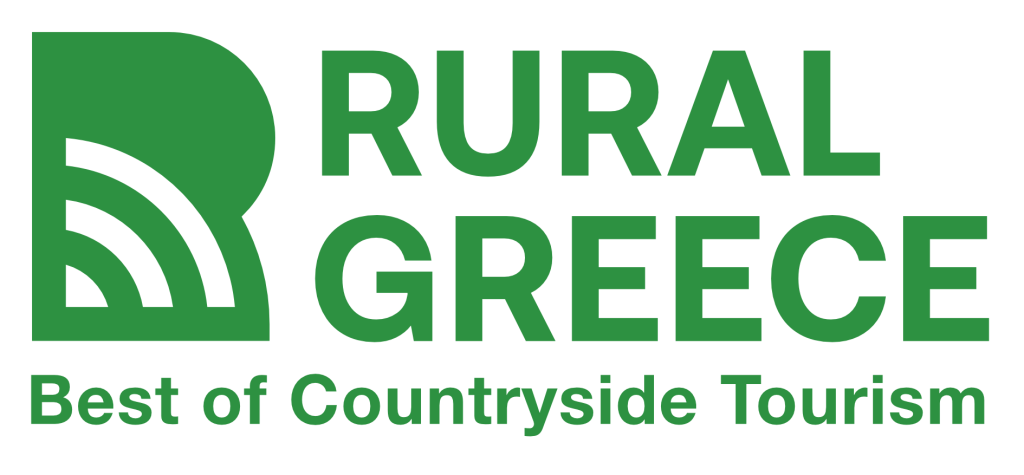Title – Name
“Ktima Kir-Yianni” Estate
Scope / Sector / Industry
Wine tourism
Country / Region
Greece, Naousa
Why is it good practice?
The “Ktima Kir-Yianni” Estate is a good Greek winery practice as it offers a variety of special and alternative wine tourism visit options, with an emphasis on culture, seeking to meet different visitor needs. At the same time, it is a model winery as it seeks to adopt a proactive approach to the environmental challenges that arise and to bring with its operation, a positive impact on the local community, local development and the natural environment on which it depends.
How is it applied?
The “Ktima Kir-Yianni” Estate is located in Giannakochori of Naousa, in Central Macedonia. The company was founded in 1997, however the winemaking history of the estate had already begun in 1970, when the Boutaris family planted 400 acres of Xinomavro on the eastern foothills of Mount Vermio, in Giannakochori, near the city of Naousa. This vineyard then became the Kyr-Yiannis Estate. Today the estate has acres of vines not only in Naousa, but also in Amyntaio, being one of the largest Greek vineyards, the management of which is based on innovation, respect for tradition and specialized knowledge about wine.
The experiences designed and offered by Kir-Yiannis Estate to its visitors are briefly presented below:
- Tasting packages with selected wines from the estate’s 25 labels, including local delicacies.
- Wine tasting of the guest’s choice accompanied by meals of local flavors.
- Picnic in the vineyards of the estate with a basket that includes local flavors and products (wine, Greek salad, cheeses, handmade bread, handmade dolmades with Xinomavro leaves and sweet yogurt).
- Cycling with the estate’s own electric bikes (Greek brand) on two marked paths. The package offers relevant equipment, map and water and includes a guided tour and wine tasting. For this service, the winery has been certified with the “Bike Friendly” sign.
- Tasting in a VIP room in the context of private events (e.g. business meetings, presentations, etc.).
The above experiences are activities that the estate offers throughout the year, however there is a variety of additional events, with rich cultural interest which are planned and implemented monthly. Indicative cultural actions that have been implemented recently and in the past are the following:
- Musical events and music storytelling
- Shadow theater
- Yoga classes in the vineyard
- Art exhibitions and workshops
- Cinema nights with films and documentaries
- Book presentations
- Events based on local traditional celebrations and holidays
- Blind wine tastings
- Thematic tastings
- Promotional events of the winemaking tradition
- Hiking and painting
- Wine tasting competitions
- Planting aromatic plants
- Poetry events
- Photography seminars
In addition to the services provided by the winery, another important reason why the Kir-Yiannis Estate is a good practice wine tourism business is because it makes a significant effort to provide services in terms of sustainability. The activities of the estate are based on the application of the principles of integrated management cultivation, with the aim of protecting the environment. Integrated cultivation also ensures high quality in the products produced.
Actions to ensure the sustainability of the estate started recently, in 2023 where a special “Sustainability” team was established with specialized executives and scientists, which works with the aim of promoting sustainable development. The sustainability practices implemented at the estate include the company’s commitment to:
- Responsible vinification
- Protection of the land
- Protection of biodiversity, flora and fauna
- Protection of natural resources
- Support of local communities
- Ensuring the sense of security and financial security of the company’s employees
The estate’s sustainability is achieved in a variety of ways. The following are indicative:
- Construction of compost from granulated stone for green fertilization as a source of organic matter.
- Planting crops of mainly endemic pulses and grains between and below the rows as a natural control system of vine vigor.
- Mapping of environmental characteristics.
- Integrated pest management focusing on careful monitoring of pests and their natural enemies to avoid crop damage.
- Sow with plants that attract beneficial predatory insects.
- Maintaining vine balance with practices such as careful pruning and green harvesting that takes place on a single vine.
- Drip irrigation system used for newly planted vines and in cases of extreme heat.
- Use of photovoltaic panels in both vineyards, covering almost 30% of the total energy consumption.
- Close monitoring of the energy efficiency of machinery/equipment and gradual replacement planning with resource-saving technologies.
- Installation of heat pumps that replace the use of heating oil and reduce CO2 emissions.
- Installation of LED lighting system.
- Reusing clean winery waste for watering the surrounding gardens and/or cleaning the outside areas.
- Reuse cores for compost and for the production of tsipouro.
- Recycling of glass, paper, plastic, engine and cooking oils, in collaboration with certified companies.
- Certification of all wines as “vegan” as no animal products are used during winemaking.
- Cooperation with companies that promote green proposals highlighting a philosophy of environmental empathy and sustainable management (e.g. the electric bicycle supply company).
For 2024, the goals set and achieved by the winery were, its inclusion in the internationally recognized working group “International Wineries for Climate Action”, which aims to reduce the carbon footprint of the industry at global level and manage the effects of climate change. To achieve this goal, its carbon footprint was measured at a holistic level (production, electricity purchase, packaging, transport of people and products) and verified the result according to ISO 14064. Also, the vineyards of the Estate became the first representatives of the country in “The Regenerative Viticulture Foundation”, an international community that shares know-how in regenerative viticulture.
The winery’s next sustainability actions include finding more responsible packaging options and using lightweight bottles that reduce the average glass weight and thus the burden on transportation.
An important and particularly well-known action of the Boutaris family that confirms its commitment to the protection and respect of the environment and wildlife was the establishment of “Arcturos” in 1992, a non-profit environmental organization based in Nymphaeum. The purpose of the action initially was to save bears and wolves and eliminate the well-known phenomenon of the “dancing bear” and their captivity. Today the organization has under its protection 9 species under protection status.
Regarding the support of the local community and local development, the winery seeks to employ workers from Naousa, Amyntaio and the wider region. Today this percentage reaches 95%. It also works with local winegrowers. In fact, the Boutaris family, in their first steps, encouraged local producers to start making their own wine, instead of just selling their grapes. It spread its vision and belief in the uniqueness of the variety and the region, contributing to the revival and development of the region in difficult times. As part of this development, at the end of 2021 the wine tourism facilities of the winery in Naousa were completed, bringing additional tourism to the area. Accordingly, in 2024 the new wine tourism facilities are to be inaugurated at the Amyntaio estate, with the same purpose, namely the offering of wine experiences, the promotion of the sense of place, local history and traditions.
Where is it applied?
The Kir-Yiannis Estate is addressed to visitors who want to live an experiential wine tourism experience, close to nature and participate in special cultural events that have as their occasion the wine itself.
When did it applied?
The Kyr-Yiannis Estate was founded in 1997.
Results
According to the winery, the Naousa estate recorded almost 10,000 visitors in its first year of operation (2022). This number is expected to increase from the operation of the new unit in Amyntaio, thus bringing tourism to an area that is not particularly developed for tourism. Along with other popular wineries in the area, the business contributes to local economic development.
Other Information
In 1971, Naousa was declared a protected designation of origin (PDO) region for the Xinomavro variety. Today, it is one of the most distinguished wine producing regions in Greece, with around 5.000 hectares of vines and around 20 wineries located in the area.
Amyntaio, on the other hand, has developed into one of the most promising wine-growing regions of Greece, producing dry red and rosé PDO sparkling wines, while being the only Greek PDO zone for rosé wines.
The official website of the “Ktima Kir-Yiannis” Estate is: https://kiryianni.gr/el/




